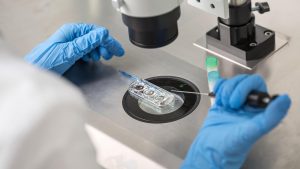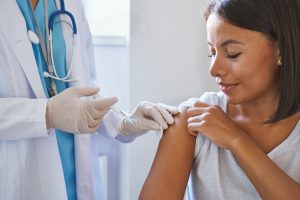There’s a reason why it’s important you get your antioxidants, and it’s partly because of oxidative stress, which can lead to poor egg quality in IVF.
Genetic integrity is important when it comes to your fertility. As we age, the levels of oxidative stress in our cells increase.
This is unfortunately something that occurs naturally, and it is something we see in both females and males who are struggling with fertility. Factors such as lifestyle, diet, and environmental factors can exacerbate the levels of oxidative stress and disrupt your body’s normal metabolic processes which can in turn, damage cells.
Oxidative stress is simply an imbalance between your body’s antioxidants and free radicals, which can lead to poor egg quality and high levels of DNA fragmentation in sperm.
The imbalance occurs during a disproportion between the body’s production of reactive oxygen species (ROS) and the level of antioxidants found in your body’s cells. Most ROS will form as a result of our body’s everyday metabolic functions and will play an important role in normal cell signalling and our homeostasis, however an imbalance of ROS will increase DNA fragmentation.
Elevated levels of DNA fragmentation have been linked to early pregnancy loss, poor embryo development and decreased IVF success, some studies also revealing that there is also a higher risk of abnormalities in offspring.
What can cause elevated levels of oxidative stress?
Aside from age, research has repetitively revealed that lifestyle and environmental factors such as pollutants, smoking and alcohol can have a significant impact on male and female fertility.
ROS can develop during the body’s natural processes during ageing, however, it can also form by exposure to cigarette smoking, alcohol, pollutants and chemicals. Studies have demonstrated that men who smoke have significantly higher levels of DNA fragmentation in their sperm, which can have an adverse effect on IVF outcomes.
Sperm with higher levels of DNA fragmentation have shown to increase the risk of miscarriage and will produce poor quality embryos. In addition to poor sperm quality, a recent study published in the Journal of Women’s Health was able to establish a strong link between smoking and the clinical outcome associated with IVF.
During the study, scientists looked at data from 2009 to 2013 and were able to show that the harmful damage caused by smoking was not only associated with diminished ovarian reserve, but it also had a significant impact on ART cycle outcomes.
Is there anything you can do to help reverse these harmful effects?
Unfortunately, you can’t rewind the clock and your body will continue to age, however there are ways to help give your body that extra boost it needs help reduce the levels of oxidative stress. You can do this by eating a balanced diet, rich in fruit and vegetables, ensure you get regular exercise, limiting the amount of processed foods, especially ones that are high in fat and sugar, reducing exposure to pollution and chemicals, limiting alcohol and quitting smoking.
Changing your lifestyle and avoiding habits that put your body at risk is something you can actively do to help improve your chances of conceiving during this unprecedented time.
Foods high in antioxidants include blueberries, raspberries, strawberries, goji berries, artichokes, kale, beans, beets, spinach and for all the chocolate lovers out there, dark chocolate.






